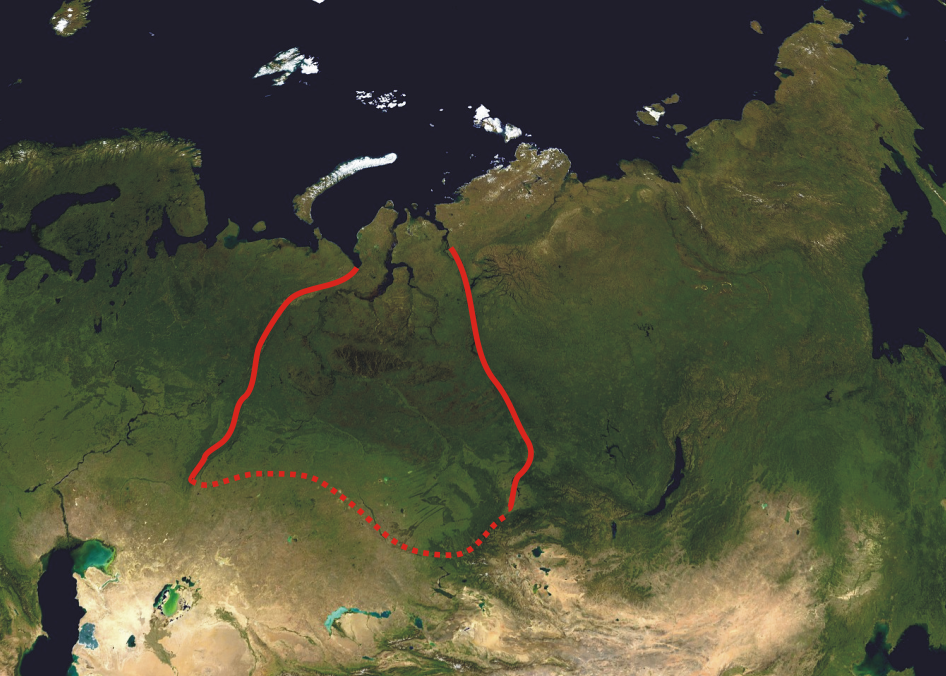Part or all of eight Russian regions will be under water by mid-century as a result of global warming and the melting of permafrost, a development that experts say will force the Russian government to radically change its development plans for the resource-rich and security-important Far North, according to researchers in the Urals.
Climate specialists at the Urals Federal University have determined, Igor Pushkaryov reports on the Znak portal, that the melting of the permafrost over the next three decades mean that “part of the territory of eight regions of the Russian Federation will disappear under water.”
Temperatures above the permafrost zone have changed “sharply” over the last 50 years, the researchers say. Earlier, they averaged about minus 10 degrees centigrade; now the average minus five degrees, and when they reach “plus one,” the experts say, “the permafrost will thaw and everything will collapse.”
Within five years, the changes will be obvious, and in a few decades, the situation will “already be a catastrophe.” Western Siberia where the permafrost is thinnest will be hit first and “all the cities of the Yamal Peninsula” will be flooded. Consequently, “all the oil and gas infrastructure will collapse, as well as all the oil and gas pipelines.”

In addition, the initial melting will undermine all buildings in Arkhangelsk and Murmansk oblasts, the Komi Republic, the Yamalo-Nenets District, Krasnoyarsk Kray and the Sakha Republic.” And subsequently, it will flood even the central Urals region as well. That will put an end to life in Russia as we know it now.
What is most immediately disturbing is the Russian government’s response: it has cut back the funding of research in this area.
Related:
- Where Russia is already beginning to collapse -- the Permafrost Zone in the Far North
- Russia's largest problem: Permafrost lying beneath two-thirds of its territory will melt this century
- Moscow acting in the Arctic the way Beijing is in the South China Sea, French analyst says
- Seven things Russians need to understand about their country and themselves now
- Three Internet appeals from Eurasia with potential real world consequences

